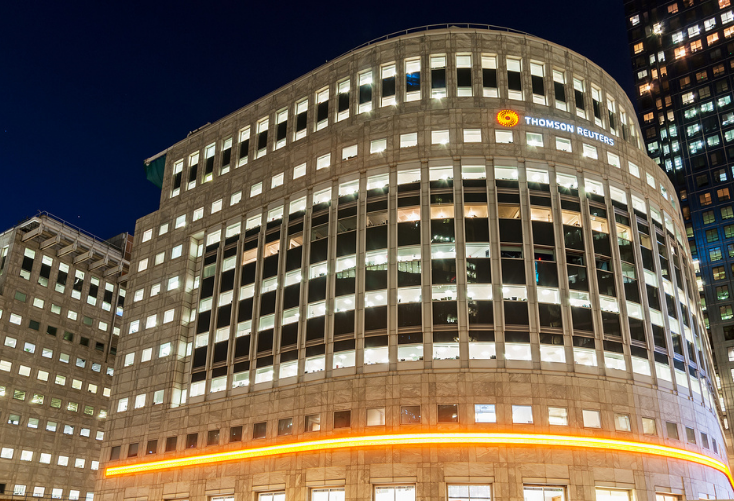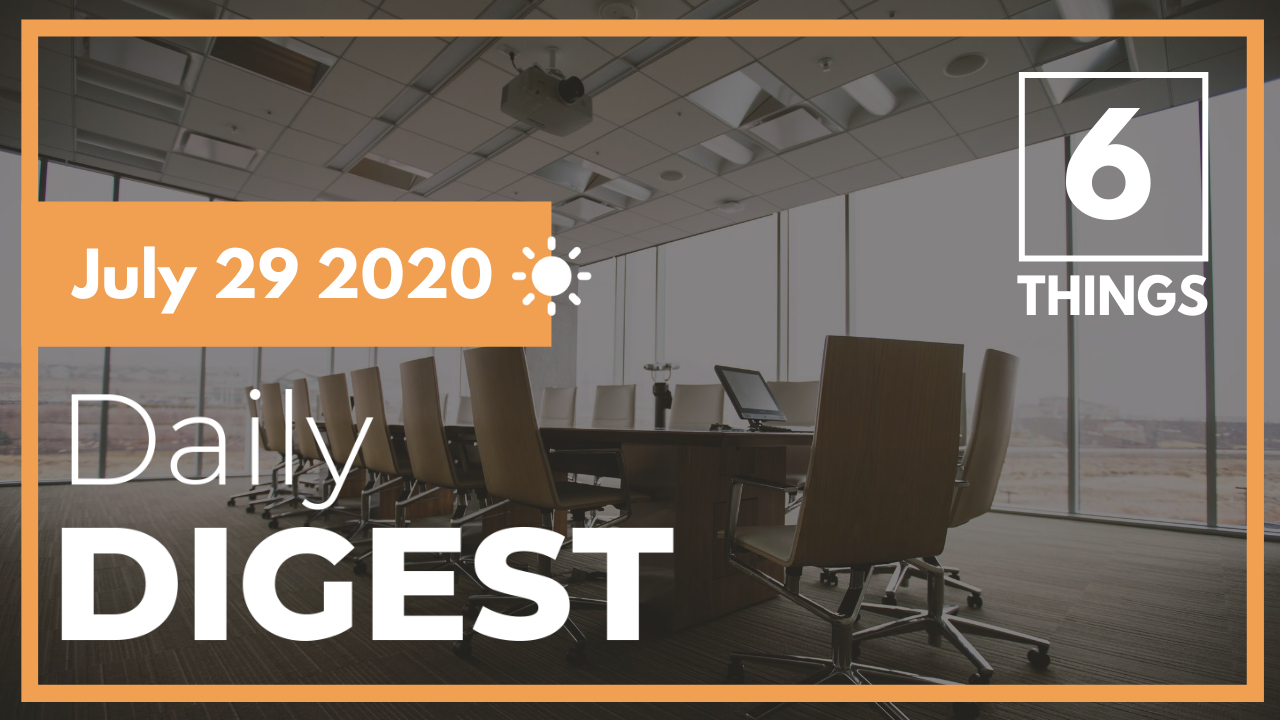Hand selected flexible workspace news from the most reliable sources to keep you ahead of the pack. We find all the latest news, so you don’t have to. Morning and afternoon updates. Stay in the know.
Here’s what you need to know today:
- How To Support Workers Who Are Struggling NEW
- Demand For Suburban Flexible Offices Grows NEW
- Hybrid Working Is Changing The Meaning Of Being At Work NEW
- Coworking Operators Buzzing With Optimism
- Technology’s Vital Role In The Future Of Work
- Thomson Reuters Reveals Mental Health Company Holiday
How To Support Workers Who Are Struggling
Mental health issues have skyrocketed over the last several months as the pandemic continues to impact how we live and work.
Employees are feeling the pressure of responsibilities at work and at home, with little room to wind down for fear of discipline from their employer.
This is leading to declining productivity and increased apathy, which is the perfect concoction for burnout. So how can companies support their employees during this time?
With remote working being the mainstay at the moment, employees need stricter boundaries in order to “shut down” at the end of the day. In fact, many workers expressed working longer hours after transitioning to working from home.
Organizations should encourage employees to turn off their work smartphone or laptops after work hours. Additionally, allow them to take days off every so often so they have the time to recuperate.
Another way to ensure that employees are nurtured during these isolating times is to host socialization activities, even if they are virtual.
For instance, having a Zoom movie-watching party, happy hour or virtual trivia can help workers feel connected to their colleagues, thus improving their mental health.
Lastly, check in with employees frequently to make sure that they are not silently struggling. This can be done through weekly or bi-weekly surveys, and HR teams can then have a better idea of how to aid their workers who may need an empathetic ear.

Demand For Suburban Flexible Offices Grows
According to The Instant Group’s recent flexible workspace market research ‘The Changing Face of an Industry’, nearly one-third of flexible office operators have seen relatively stable occupancy levels over the last several months.
Additionally, the research has found that demand for flexible workspaces has grown in smaller areas and outside of major cities. However, there are still challenges ahead for the industry as the threat of the virus continues to loom over.
“The flex industry has experienced a dual impact — on the one hand, the pandemic exposed weaknesses in some of its operating models but the future of the office market looks to be considerably more agile, which will ultimately play to its strengths,” said John Duckworth Head of UK and EMEA at the Instant Group. “Whilst the remainder of the pandemic period requires nerves of steel, the recovery phase will see significant opportunities as the sector’s relevance in terms of corporate recovery and strategic portfolio solutions come to the fore.”
Prior to the pandemic, corporations started turning to flexible office space as they reevaluate their real estate portfolio.
The research also revealed that operators in suburban areas have seen a much larger uptick in contract terms compared to major city locations. This follows the trend of people wanting an office to return to, without the lengthy commute and public transit use.

Hybrid Working Is Changing The Meaning Of Being At Work
According to a new study from the International Facility Management Association (IFMA), 82% of SMEs anticipate that over a quarter of their employees will work remotely most of the time after the pandemic has ended.
While remote working is often synonymous with being at home, it can also mean working out of a local working space or coffee shop.
However, moving towards more flexible work policies doesn’t mean that the office will no longer be necessary. On the contrary, it will still be key to conducting collaborative meetings and staying connected with colleagues.
This is good news for those who have experienced the downsides of strictly working from home throughout the pandemic. Many people do not have the resources, tools or privacy to conduct business efficiently at home, and that can be incredibly stress-inducing.
“If you’ve ever experienced a day filled with interrupted and inefficient calls it can feel exhausting,” said Jesper Kock, Vice President of Research and Development at audio solutions leader EPOS. “This is because the brain is wasting unnecessary energy and cognitive capacity to focus on the relevant and desired sound.”
The survey found that over half of SMEs are expecting company budgets to shift away from physical offices and towards accommodating a better employee experience. That could mean improved technology to make work easier, wellness amenities and more.
Using this type of hybrid work arrangement allows employees to reap the benefits of working inside and outside of the office. It means that companies can better meet sustainability goals, while also helping workers achieve a healthier work-life balance.

Coworking Operators Buzzing With Optimism
Despite the massive hit the coworking industry has experienced over the last few months, operators are optimistic about the future.
While millions of people have been forced or chosen to work from home for the time being due to the ongoing pandemic, flexible office experts are finally seeing a spike in demand for those who miss the office.
However, in the meantime, major operators have had to make drastic business decisions to stay afloat. For instance, WeWork is currently offering a 50% discount for some tenants due to low occupancy levels, while IWG registered a pre-tax loss of £176 million for the first half of 2020.
This has led them to renegotiate leases, and in the case of IWG, file several of its U.S. locations into Chapter 11 bankruptcy to make the restructuring process less risky.
“We’ve talked to all of our landlords across the world and looked at which [offices] were great and which ones were tough,” said Patrick Nelson, head of international real estate at WeWork. “To some, we say respectfully ‘this is an asset we don’t want in the portfolio.’”
Still, companies have become enlightened about the best workplace strategies due to this swift change. Now, many are looking forward to a more flexible future that accommodates all work styles for employees.
“Covid is like dynamite. . . no one is ever going to work in the same way again,” said Mark Dixon, CEO of IWG.

Technology’s Vital Role In The Future Of Work
Offices around the world have remained largely quiet as millions of people seek safety by working from their own homes.
Without the latest technologies, this transition may have not been possible. However, now that laptops, smartphones and other devices are largely accessible, we could be right on track towards a digitally-fueled future of the workplace.
While this transition seems to mean that remote working could become a permanent fixture for some companies, there is still value in having a physical office for many people.
“We come together to collaborate, we come together to be with other people like us,” said Edward Wagoner, chief information officer at JLL Technologies. “Even though some offices aren’t open, people are still looking to get back out into … physical spaces, we’ve seen that all over the world.”
But this will have to come with significant changes that will require advanced technology to keep up with sanitation and distancing guidelines.
This means implementing automation and artificial intelligence to better maintain the physical workplace. Although there is a perception that using this technology in the workplace would equate to less jobs, it could actually boost job prospects as people upskill.

Thomson Reuters Reveals Mental Health Company Holiday
Media conglomerate Thomson Reuters will institute a company-wide mental health day on October 9 that will take place on or around World Mental Health Day from now on.
“This year has tested all of us in innumerable ways,” said Steve Hasker, the company’s CEO. “If there’s one thing 2020 has taught us, it’s the value of having the mind-space to deal with the unexpected. It’s important for individuals and it’s important for businesses.”
This announcement is part of the firm’s long-term plan to focus on the mental health of employees. The company also recently added the meditation app Headspace as part of its employee benefits.
Research has indicated that the pandemic has caused mental health problems to spike. In fact, FlexJobs found that 75% of employees are experiencing burnout at work, while Total Brain said that the risk for depression has risen by 102%.
Knowing this, organizations are putting in the extra effort to support and nurture their employees throughout this tumultuous period in history.
For instance, Cisco recently offered employees a mental health day in May, while Google extended Labor Day weekend so employees had more time off.

















